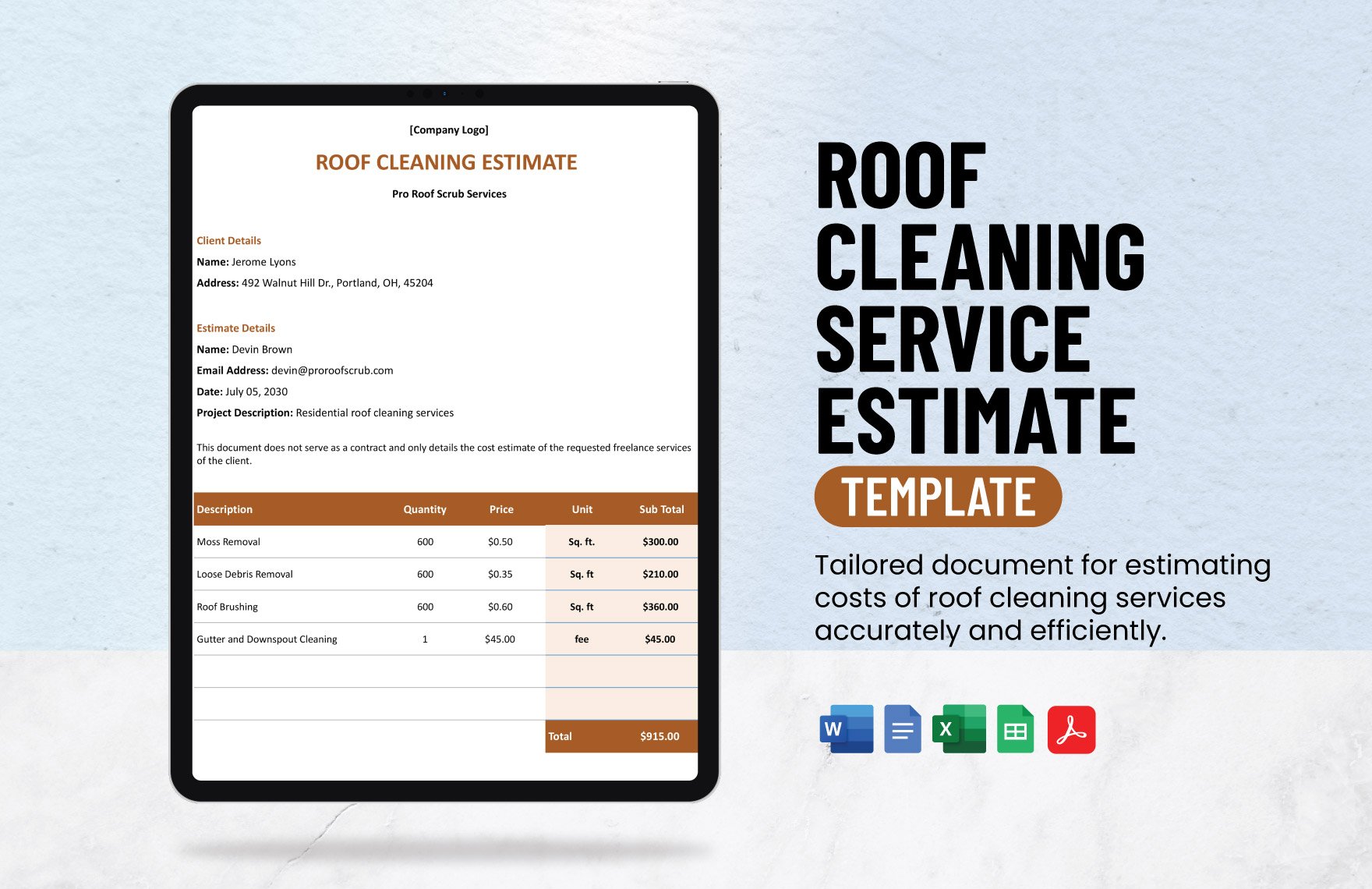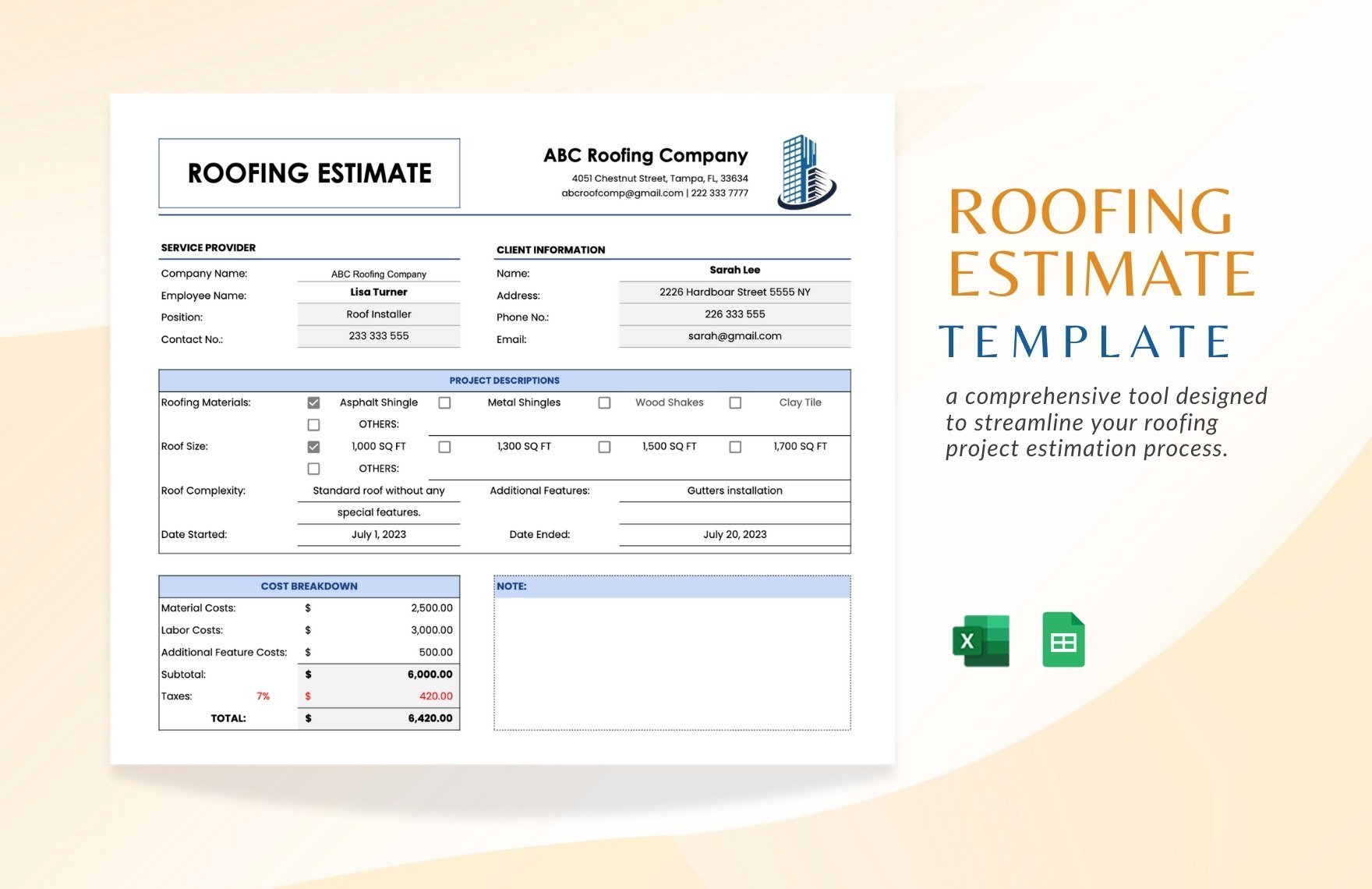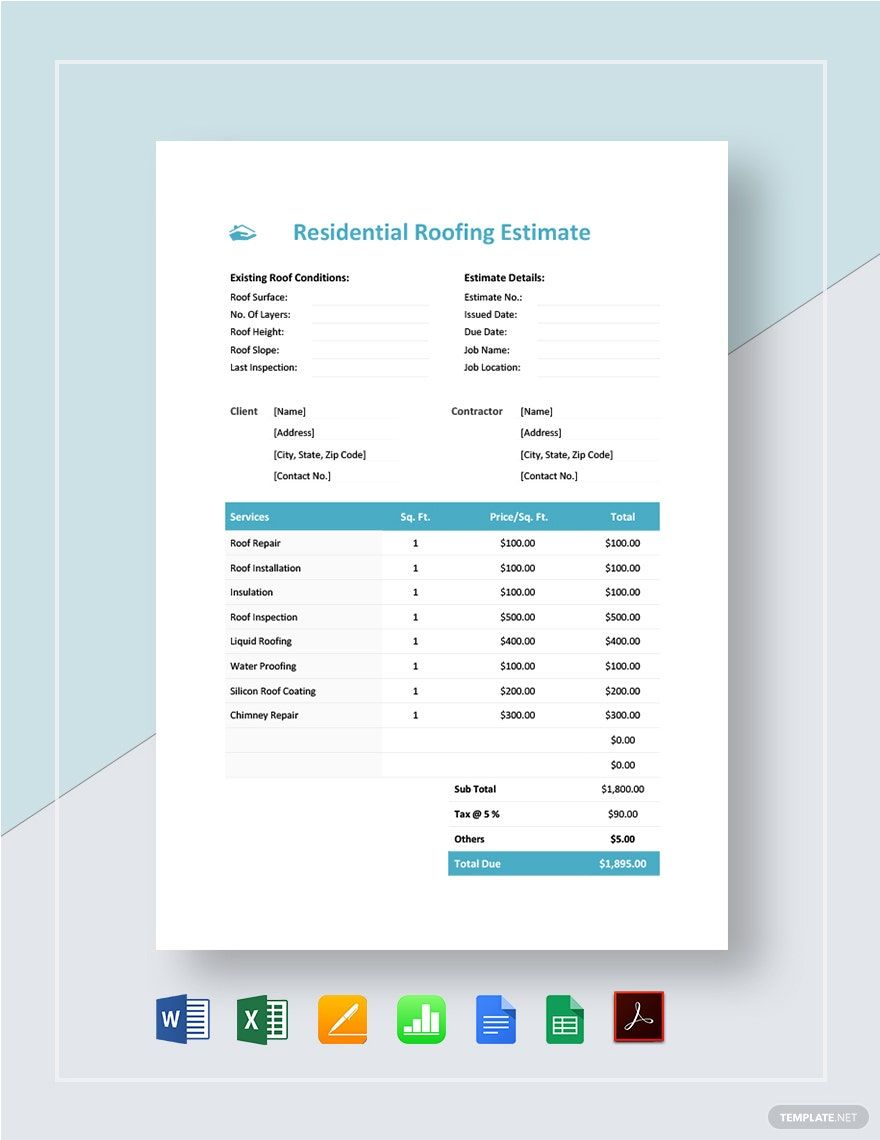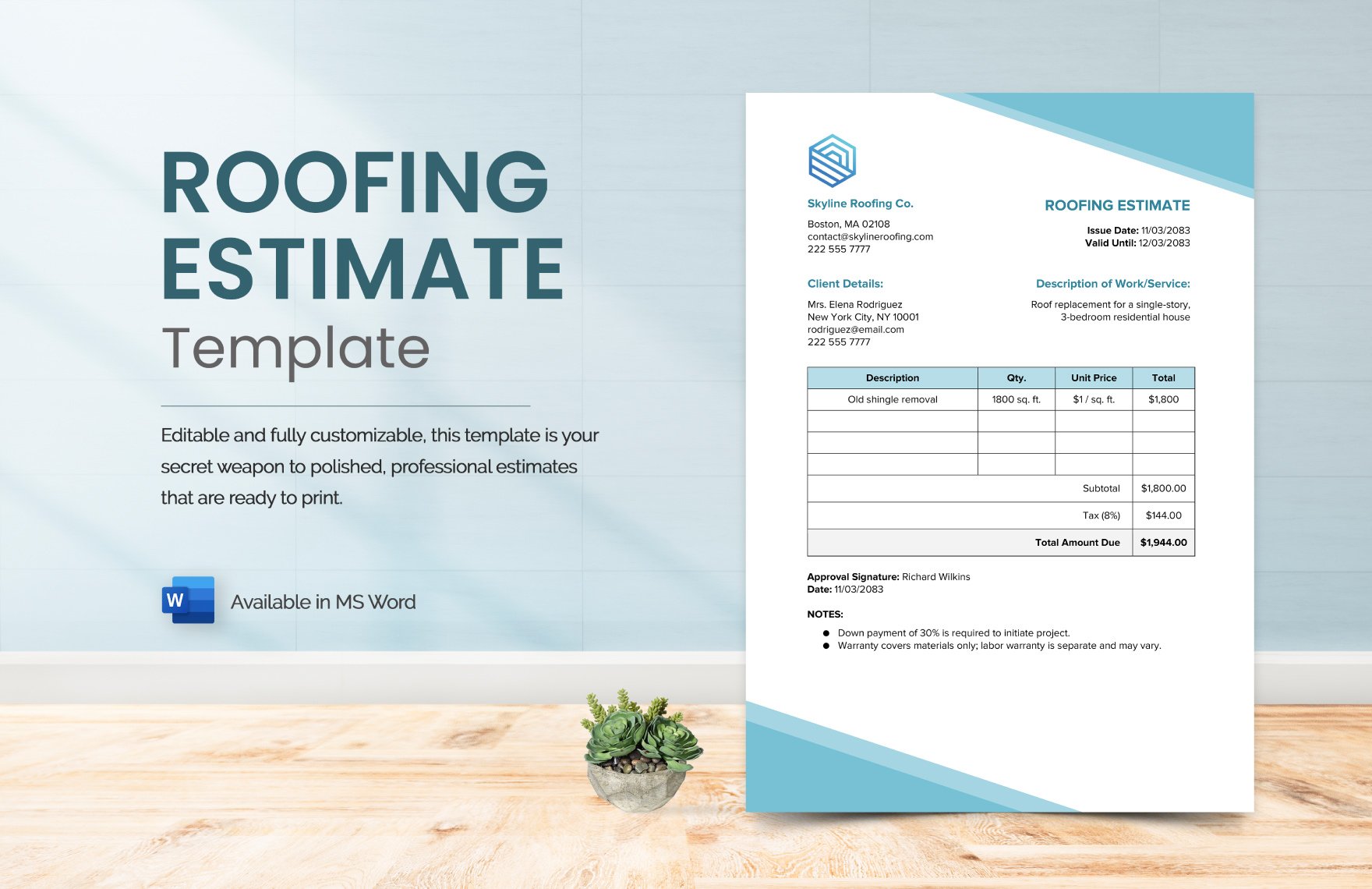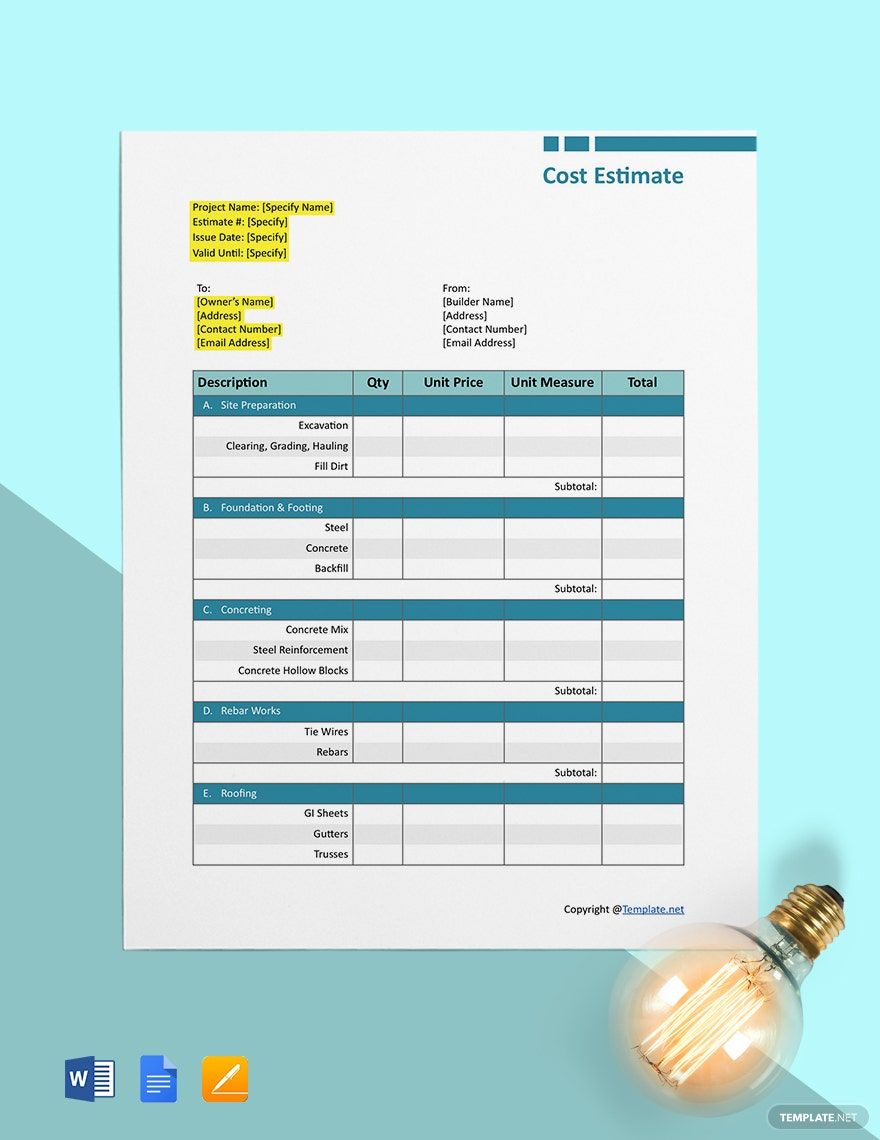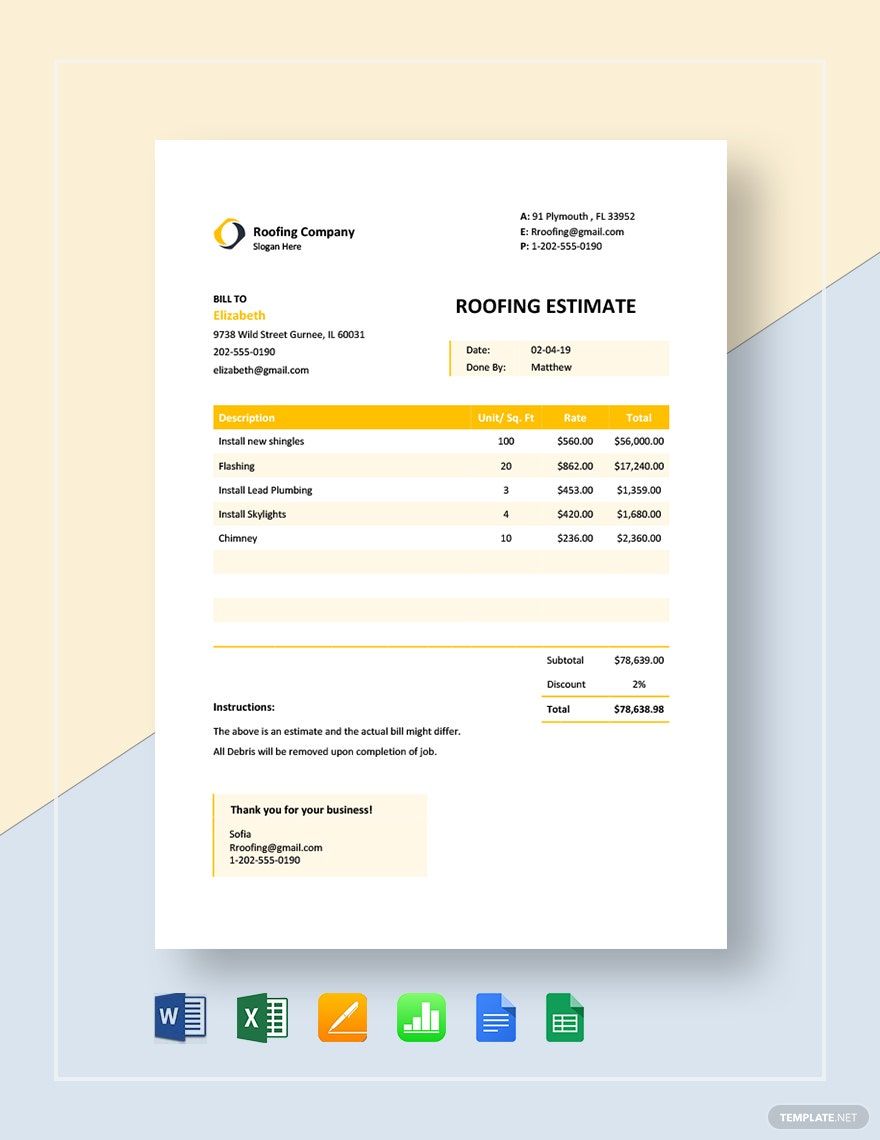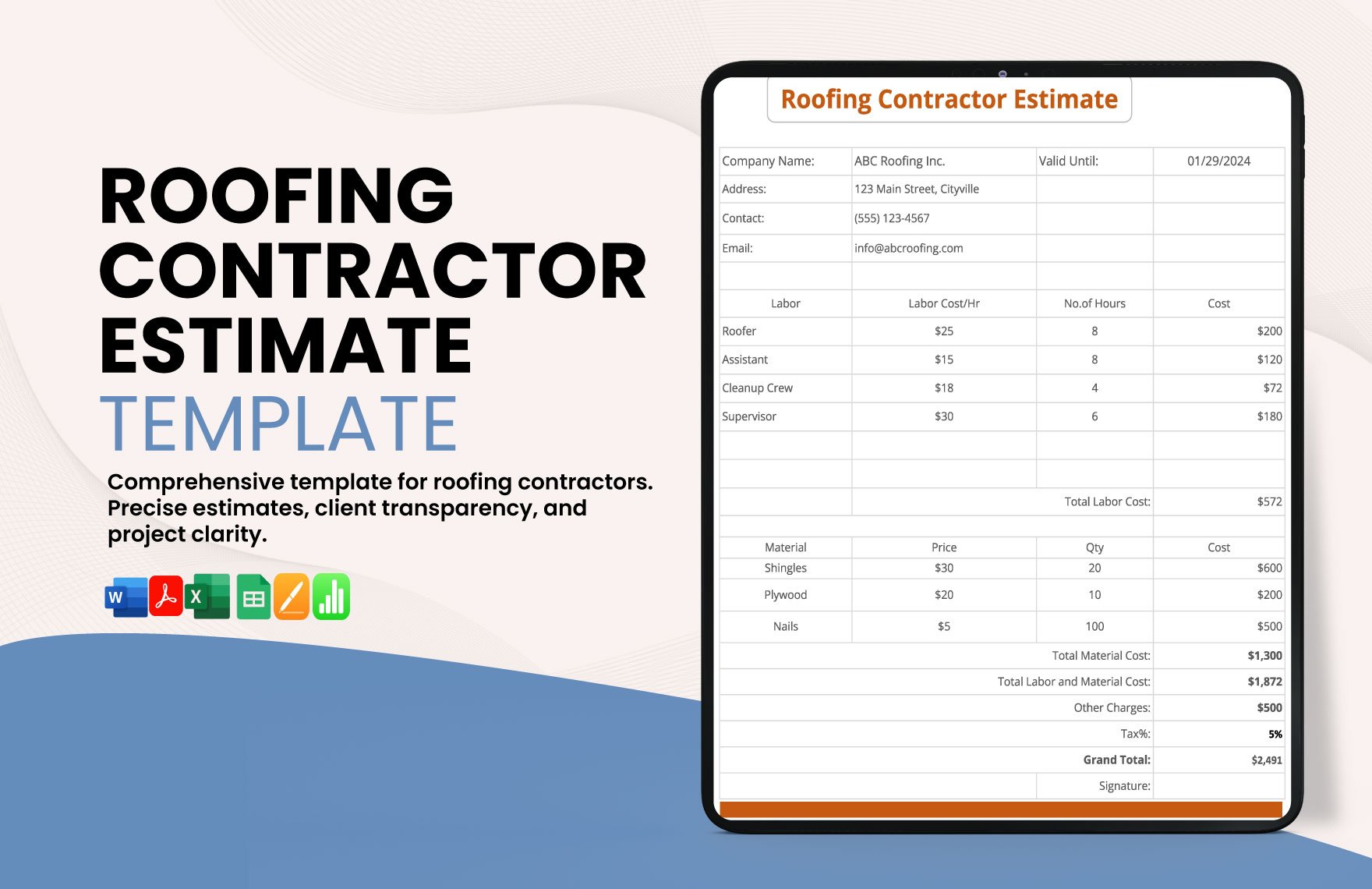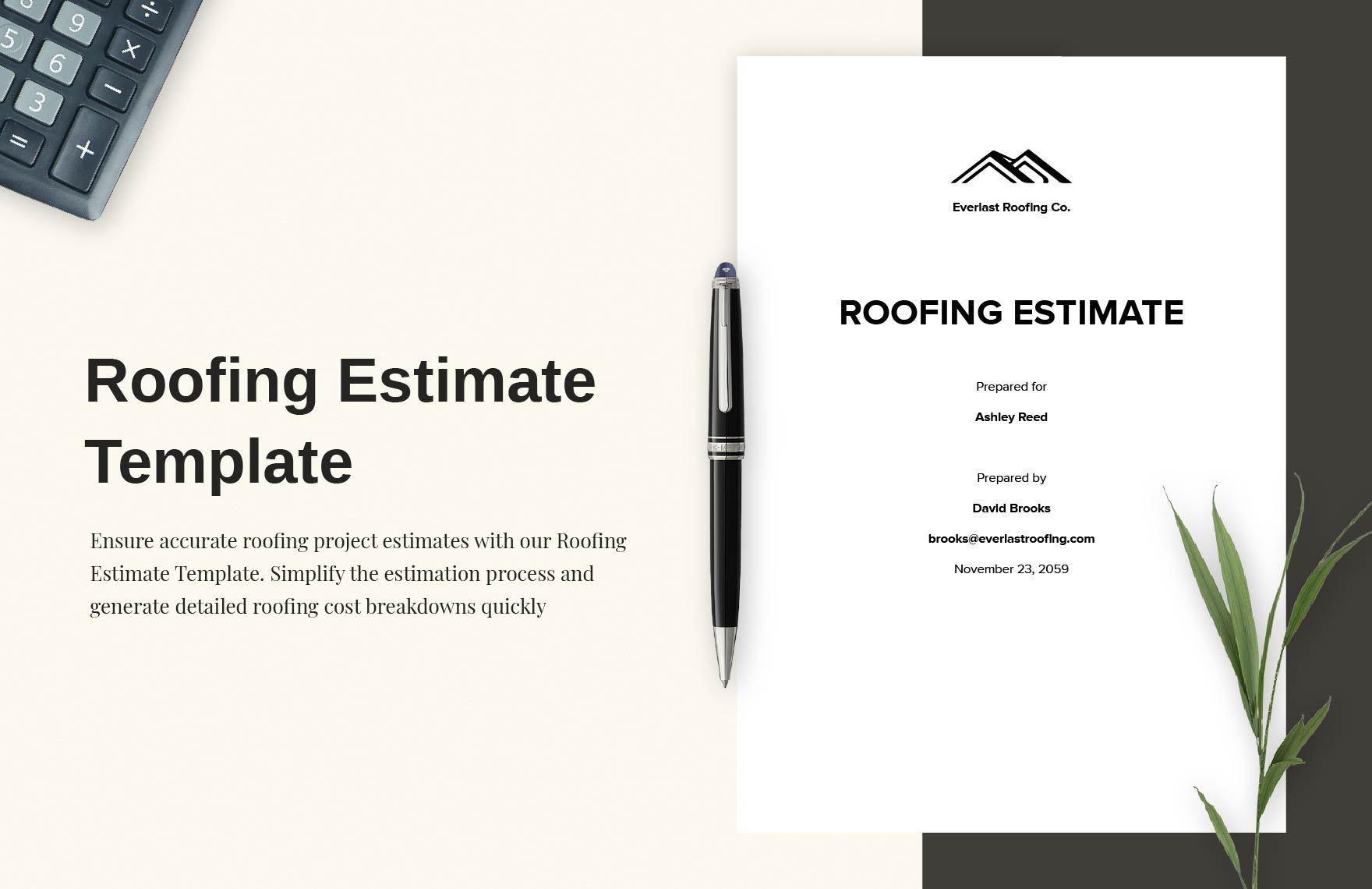A roofing estimate report is done in construction project reports, particularly in establishments that require a roof. To make a hassle-free roofing estimate, we provide you with templates that will make your work more convenient. In Template.net , we have a variety of estimate templates for your estimate report needs. Explore our website and discover an endless number of templates that are 100% customizable, high quality, easily editable, and printable. These templates are professionally done by our writers so you don't have to worry about the default content. In addition, these templates are also beautifully designed by our layout artists. Don't miss this opportunity and join any of our subscription plans now.
What Is a Roofing Estimate?
A roofing estimate is basically a work report that tells the amount of material, manpower, time, and cost of particulars when doing roof work. A roof estimate may vary depending on the surface area that it needs to cover up. Also, there are specific materials that are used in putting up roofing, and that one factor affects your sample estimate.
How to Make a Roofing Estimate
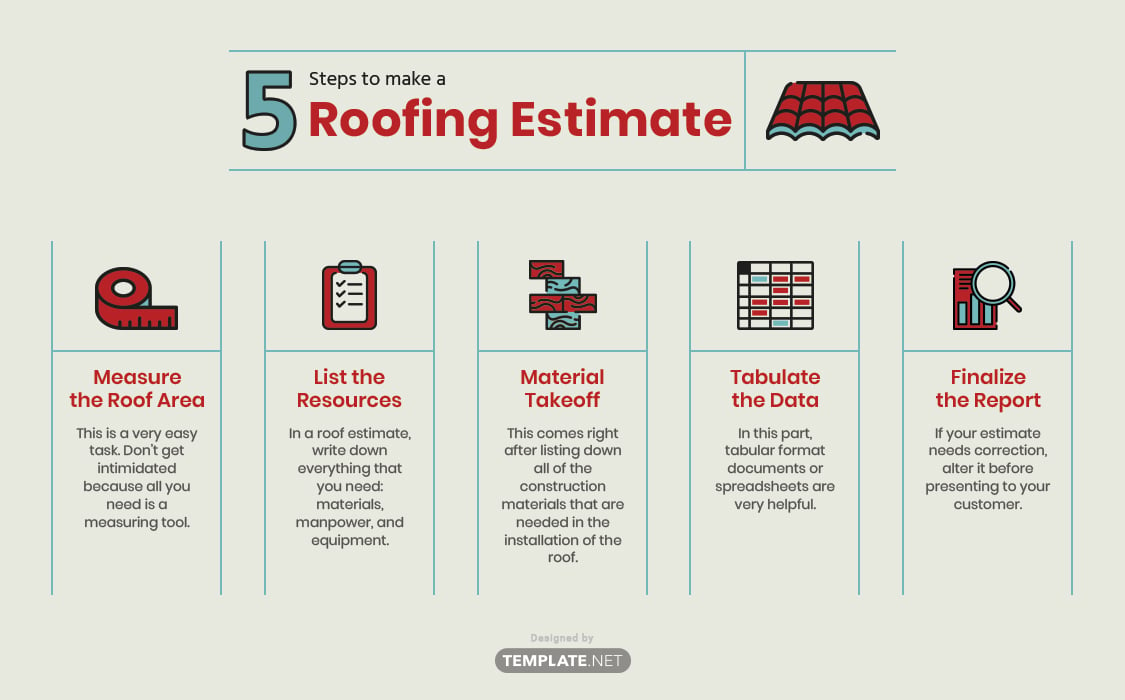
Estimating a roof might not be as dragging a task as estimating an entire construction project since it only deals with a certain part of an establishment. To make a good roof, start with knowing the area of your roof. There are measuring tools that can help you with this. Then, list down the materials that are needed. Take note and write a checklist of the specifications. And by that, you will be able to make your roof estimate report. Here is the guide that goes in-depth with the step-by-step process in roof estimation.
1. Measure the Roof Area
This is a very easy task. Don't get intimidated because all you need is a measuring tool. An area is a quantity that expresses the extent of a dimension figure or shape in the plane. To measure the area of the roof, use your measuring tool and start from a tip ending to another tip of one side. And do the same for the second side. If you have a complex roof shape, breakdown the plane to make a two-dimensional figure. To arrive with your roof surface, just multiply the measure of the two sides.
2. List the Resources
Of course, if you build something, there should be materials to establish your project. In a roof estimate, write down everything that you need: materials, manpower, and equipment. If there are any specifications for your project, list them down as well. Having a list of the things that you need will help you oversee a rough calculation of your expenses. The cost of your project will come from spending on the materials, paying for the labor, and equipment agreements.
3. Material Takeoff
This comes right after listing down all of the construction materials that are needed in the installation of the roof. Material takeoff means that you have to check the availability of materials and their respective prices. To have an easygoing material takeoff, make an estimate sheet to have a description of your materials. In this way, you will find them in the hardware easily.
4. Tabulate the Data
In this part, tabular format documents or spreadsheets are very helpful. In tabular form, write down all the information you gathered. Start enumerating the materials, have them describe and the usage. Include unit cost and total cost sheets. Do this to all of the materials in your takeoff. Then, put down the equipment and their rent per hour and also the labor with their rate per hour. After enumerating all the resources for your project, have a separate space that shows the final total cost of the roof.
5. Finalize the Report
Once you are done with your report, go over to the sheets to check typos and incorrect data. If your estimate needs correction, alter it before presenting it to your customer.
